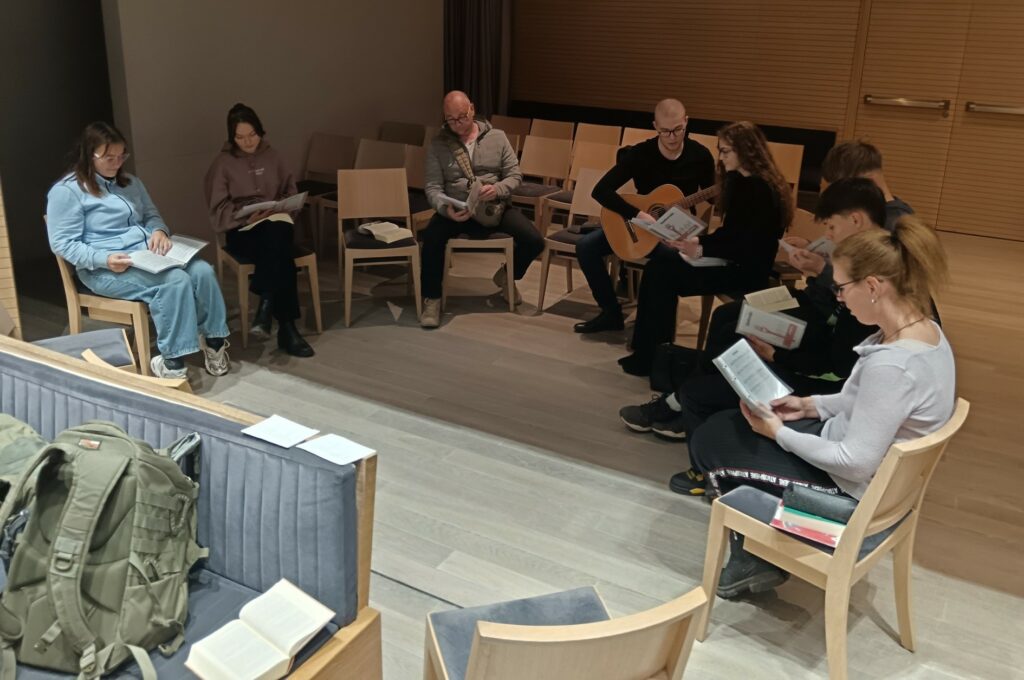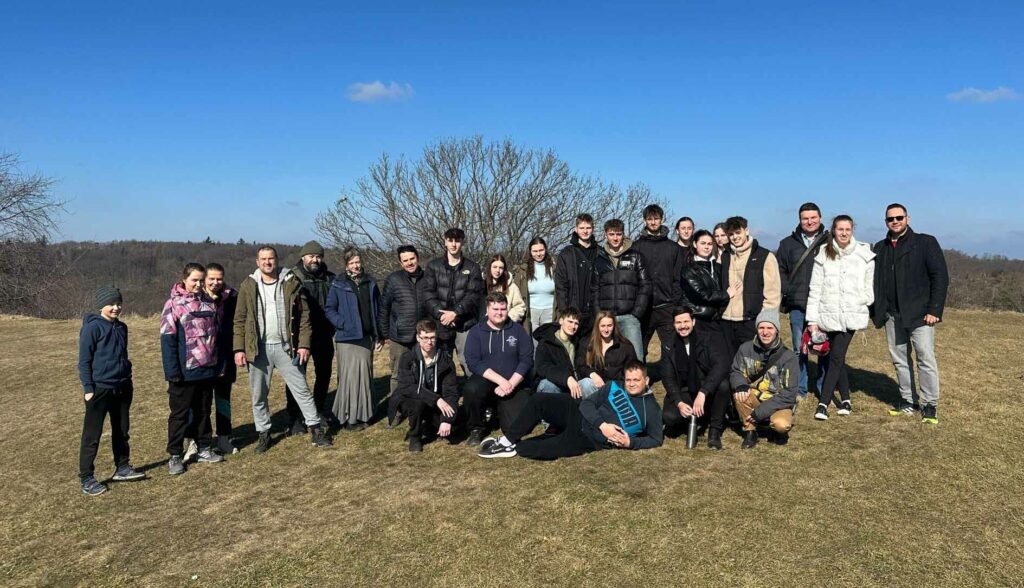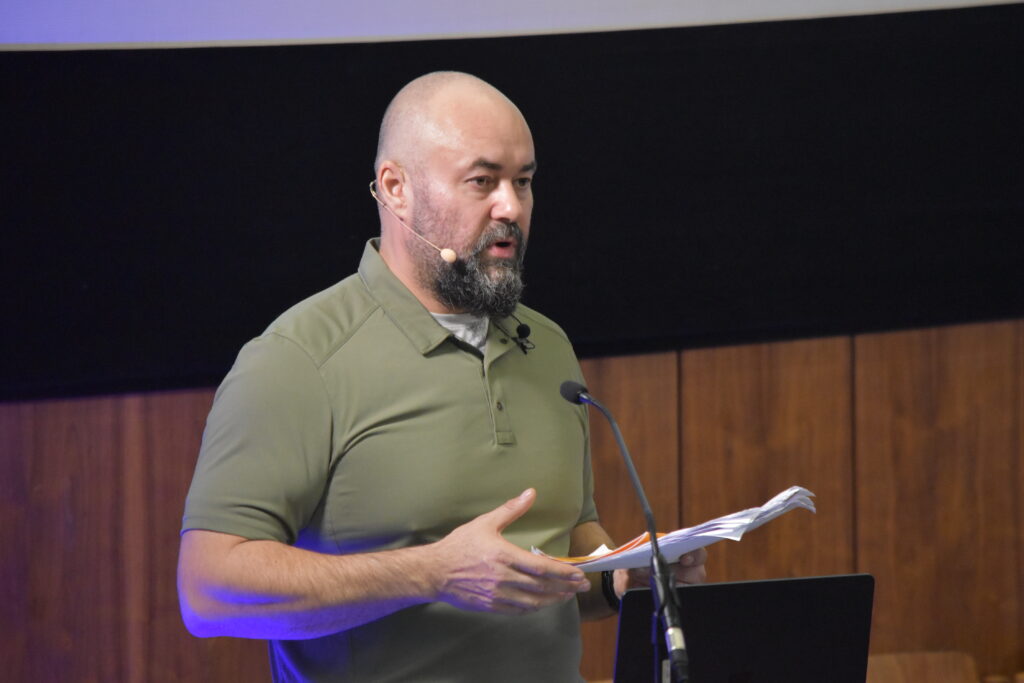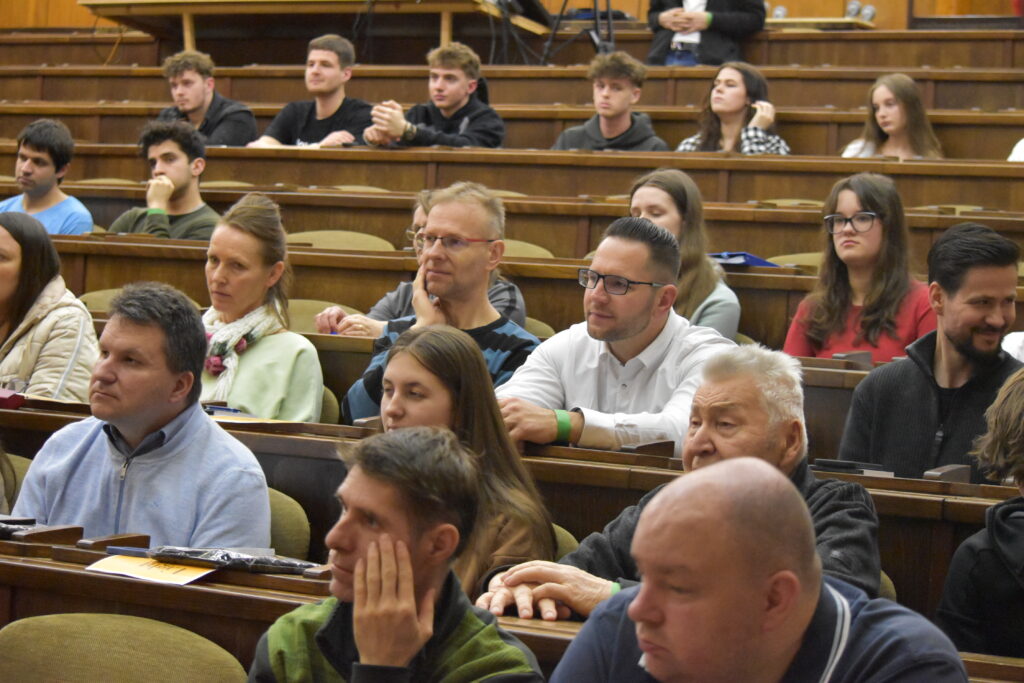Nature and Simple Meals Are Key to Resilience, Former World Champion Says
Daniel Dvořák calls Adventists to focus on things that help us to be “strong in the Lord.”
March 28, 2025 | Silver Spring, Maryland, United States | Marcos Paseggi, Adventist Review
“I prepared a lecture that is very close to my heart,” said Daniel Dvořák, a Seventh-day Adventist church member in Prague, Czech Republic, during the light4cities event in early March. “I want to talk about what can help us to increase our physical, mental, and spiritual resilience.”
Dvořák, a former atheist and powerlifting world champion, became a Seventh-day Adventist after what he says was God’s direct intervention in his life. Dvořák believes in reaching out to others, but he also sees value in training people to thrive in every aspect of their lives before doing so.

A group of Seventh-day Adventists in Prague combines regular activities outdoors with hearty meals and reading the Bible and Ellen G. White’s books. Doing this, they say, improves their resilience and mind functions. [Photo: courtesy of Daniel Dvořák]
Spiritual Balance Is Key
“For years I was focused on just performing better. I was focused on the physical and mental part, but the spiritual part was missing,” Dvořák acknowledged during the lay-led initiative that gathered more than 140 Adventist members for a weekend of revival, training, and worship. “It took me years to understand that being in top shape with regard to my brains and muscles is not enough. We also need to be spiritually balanced,” he said.
Dvořák also shared how thanks to the Bible and Ellen G. White’s book Mind, Character, and Personality, he came to understand the importance of proper nutrition for optimal resilience. “Sometimes we eat what doesn’t give us energy, so my motivation has been to learn how to eat to have more energy and eliminate fatigue in my family and me. Because when you are in better shape, you have a better chance of fighting temptations and the pressures of living in this world.”
In Search of Strength
Dvořák also highlighted the cumulative results of following a God-given plan for resilience. “When you become more resilient, your family and your group of believers can also become more resilient. Everyone benefits,” he said. “I know that the church’s mission is to spread the gospel, but when you are exhausted, you don’t want to go out to share anything.”

Bible study and spiritual activities are more meaningful when we are rested and do not walk on an overloaded stomach, a group of lay members in Prague, Czech Republic, say. [Photo: courtesy of Daniel Dvořák]
At the same time, Dvořák emphasized, the key to resilience is being willing, with God’s help, to stand every test that comes our way. “Facing our trials makes us stronger and stronger, and then we may be able to see what plan God has for us,” he explained.

A group of Seventh-day Adventists in Prague, Czech Republic, participate in regular walks out in nature as a way of fostering physical, mental, and spiritual resilience. [Photo: courtesy of Daniel Dvořák]
Outdoor Time Is Essential
Dvořák reminded attendees that an excessive use of our brains can lead to weakness and exhaustion. Striving for balance with physical activities out in nature helps to build resilience and the ability to face challenges and trials.
Some contemporary “solutions,” such as going shopping and scrolling down your social media accounts, might provide short-term relief, he acknowledged. “But you are just giving your body a shot of adrenaline to the point you become irritable, and your self-control decreases,” Dvořák explained.

Daniel Dvořák, a former weightlifting world champion who became a Seventh-day Adventist in Prague, Czech Republic, shares what he has learned about boosting our resilience to face challenges and fight temptation. [Photo: Marcos Paseggi, Adventist Review]
The Importance of Simple Meals
Dvořák also emphasized the need to focus on consuming quality food. “Our thoughts have their seat in our bodies,” he explained. “We must take care of our bodies so our faculties can be used to the highest degree. We know that an overloaded stomach weakens the mental powers.”

Part of the attendees to the recent light4cities event in Prague, Czech Republic, follow Daniel Dvořák’s presentation on how to build resilience and enjoy a better, wholesome life. [Photo: Marcos Paseggi, Adventist Review]
Finally, Dvořák called to eat with a spirit of thankfulness and prayer and focus on good-quality sleep, things that can do wonders for one’s health. The key, he said, is to build good habits, because “habits decide our future.” “If we want to contribute to God’s work, we must be in shape,” he said. “Breaking from old habits will seem difficult at first, but with repetition it will become easier and easier. . . . That’s my wish, that we may improve our habits until we run the race and win the prize.”